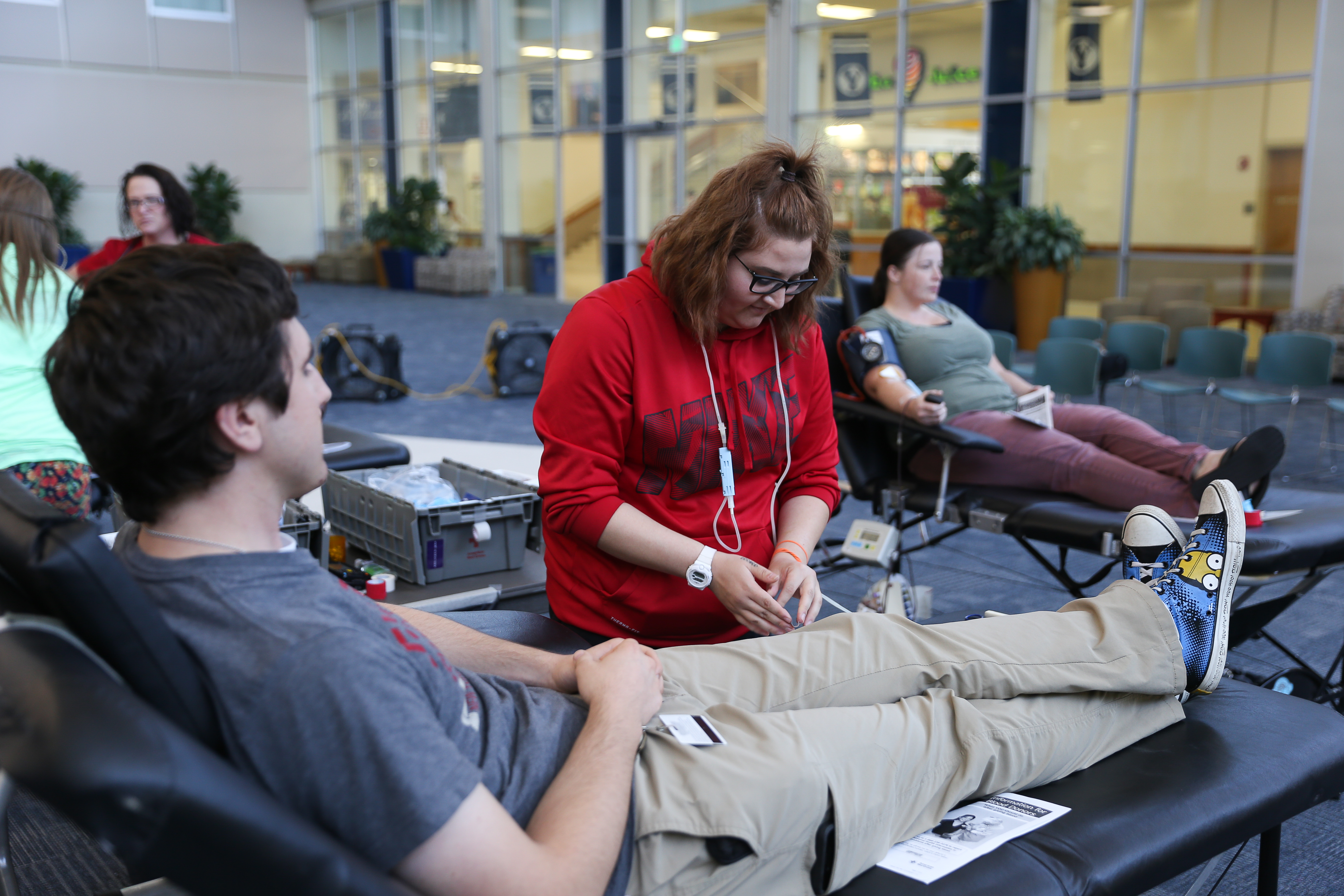
The American Red Cross had already scheduled a blood drive to be held at BYU Tuesday, Oct. 3 and Wednesday, Oct. 4. They expected 25 donors to show up on that first day, according to sign-ups online.
Then, the Vegas shooting happened.
The evening of Oct. 1 around 10 p.m., a lone gunman began shooting down on the crowd at a country music festival from the 32nd floor of a nearby hotel. Fifty-eight people died and over 500 were hospitalized in the worst mass shooting in American history.
In Las Vegas, lines to donate blood on Monday went out the door of clinics with hours-long wait times. Tuesday at BYU, the wait time became one hour, then two hours, then three, as more than the expected 25 donors began to line up.
Some had already planned to donate, like Kate Green.
“I just feel like it’s a really good thing to do, a lot of people need it, especially with the events of yesterday,” Green said. “You just never know when you or a family member (will be) in a situation that might need it; one day, you might be the one needing it.”
Others, like freshman Becca, did not sign up in advance for the blood drive. Becca didn’t even know it was happening until she saw a sign in the Wilkinson Student Center advertising the blood drive.
Becca said she feels obligated to donate blood and decided to donate more often because of the simplicity of the service.
“You could give somebody the chance to live a happy life,” she said, “If there’s something you can do and you’re healthy enough to do it, why wouldn’t you?”
Sarah Bryden shares Becca’s attitude. She said people often think of service as something more physical, such as working in a neighbor’s yard, but donating blood is a service as well.
“This is a way to help people and I’m just so glad I’m able to give back to the community this way,” Bryden said.
For others, donating blood can be a little more difficult. Student donor Torrie said that after she donated for the first time, she got involved with organizing blood drives so she could still help without having a needle stuck in her. However, the events of Monday’s shooting motivated her to overcome her fear.
“Even though it makes me uncomfortable, I come,” Torrie said.
Still others have more personal reasons for donating blood. Lauren has a seven-year-old sister who has battled cancer since she was just three years old and is often on the receiving end of blood donations.
“If she’s not scared of needles, neither am I,” Lauren said.
Rachel, another student donor, is from the area of the shooting. Her mom is a nurse at Sunrise Hospital in Las Vegas and normally works with children, but Rachel said that her mom was pulled down to help with incoming shooting victims.
“This is important,” Rachel said. “That’s (my) home.”
Rachel added that she would wait however long she needed to in order to donate blood.
On-duty nurse Chantell said there is just not enough staff to meet the influx of donors throughout the state of Utah the day after the tragedy. She added that the amount of donations has overwhelmed the lab used for processing blood, and at this point, donors are restocking the blood supply depleted by victims of the Vegas shooting.
The American Red Cross and United Blood Services have encouraged people to continue donating blood over the next few weeks because the need for blood is constant. United Blood Services recommends on its website that people donate blood three times per year.
Chantell said there is a constant need for blood donations, especially since the shelf life of different blood components range between two days to a little over a month.
People who want to donate blood in their community can find local blood drives in Utah using the American Red Cross blood donor site.




